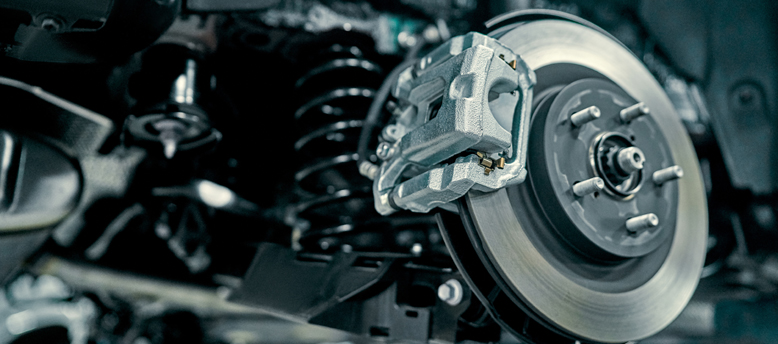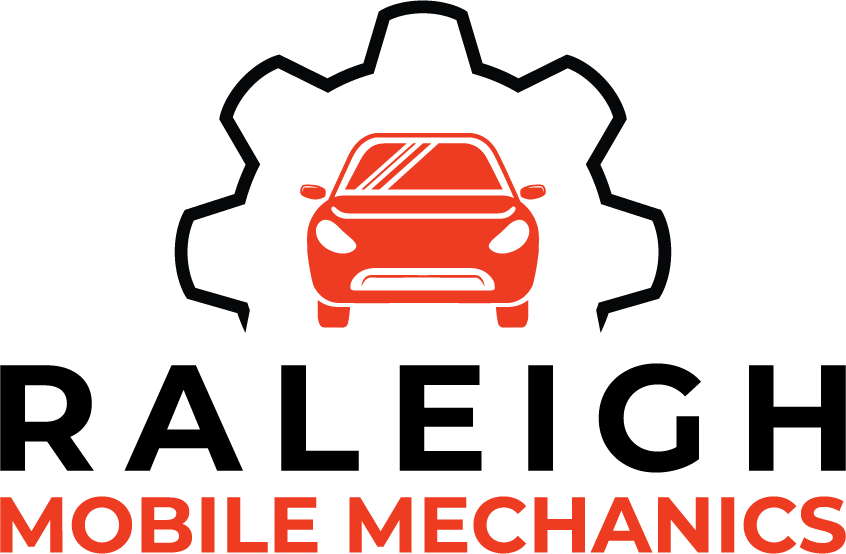What Is A Brake System?
A brake system hinders movement by absorbing the energy from a moving object. It is used to stop or slow down a vehicle utilizing friction. Generally, brakes are applied to rotating axles or wheels.

How Do Car Brakes Work?
Many, if not all, modern cars have a brake on each wheel. The brakes could either be disc brakes or drum brakes and they are operated by a hydraulic system. When a driver steps on the brake pedal, it generates hydraulic pressure, which travels to each wheel.
The friction material is driven into a spinning surface connected to the wheels. This causes friction, which slows or stops the car eventually. Using the brakes causes the weight of the car to move forward to the front wheels.
As such, the front brakes play a bigger role in stopping the car than the rear brakes. Because disc brakes are more efficient, they are usually in front while the drum brakes are at the back. High-performance cars use all-disc braking systems, while smaller and older cars use all-drum systems.
Types of Brakes
There are two kinds of brakes: the disc type and the drum type. These are the brakes that stop your car. Additionally, cars also come with anti-lock brakes and emergency brakes.
A disc brake uses calipers, which house the brake pads and pistons of your car, to squeeze the pads and create friction. This action slows the rotation of the car’s axle causing it to reduce its speed or become stationary. The most commonly used disc brake is the hydraulically-actuated disc brake. However, most disc brakes can be used on any rotating axle.
Drum brakes have a hollow drum attached to the wheel. When the brake pedal is pressed, the hydraulic pressure moves the wheel cylinders against the drum. The car slows or stops due to this friction created.
Anti-lock braking systems are useful when driving on slippery or wet roads. They are usually found in newer cars. From the name, anti-locking brakes keep the wheels from “locking up” so the tires don’t skid when the road is slippery or wet.
Emergency brakes work next, but independently, to the service brakes. They are also called “parking brakes.” Most all are powered by cables that apply pressure to the wheels mechanically. They are used to keep a car from moving when parked, or when the brakes fail.
A common type of this is the handbrake. Its main purpose is as a parking brake but you can also use it when the hydraulic system doesn’t work. The mechanical handbrake works on the two rear wheels.
Common Brake Problems
When you notice a difference in the performance of your car brakes, call a mobile mechanic immediately. Brake problems, all car problems for that matter, should not be taken lightly. The brakes are one of the most important safety systems in your car.
If you notice some braking issues and have it checked right away, you’ll be driving safer and possibly save yourself from more expensive repairs later. Brake servicing is something that should be done regularly.
Ideally, you don’t wait to notice problems before having your brakes routinely checked. Parts of the brake system have a lifespan, so to speak. They will need to be checked, repaired, or replaced by your reliable auto mechanic. Here is a list of brake issues to watch for:
This is one of the first and clearest signs your car might need brake inspection. Just be sure it isn’t your parking brake that’s engaged, which could also cause your brake light to warn you.
This may not necessarily be a brake problem; it could be that the shock absorbers need to be replaced.
Unfamiliar, especially noxious, smells are not normal. It could be a sign of overheated brakes or clutch. If there is smoke coming from any of the wheels, it isn’t safe and you shouldn’t be driving your car.
The master cylinder is responsible for the power in your brakes. Its reservoir contains the brake fluid. When the fluid starts to leak, there may not be enough power for the brake pads to work properly.
If you feel unbalanced when you stop or brake, it could be a caliper problem or a broken brake hose.
When you step on the brake pedal, it should stop at around 3 inches from the floor if you have manual brakes and about 1.5 inches for auto brakes. If you need to press harder than this and you can feel the pedal going all the way too close to the floor, it’s a clear sign of a problem.
An uneven rotor can make the steering wheel feel shaky or vibrate as you step on the brakes. This wouldn’t happen if the rotor is smooth and even in thickness.
Grinding sounds could mean several things: something is stuck in the caliper, the brake pads may be worn out, or the rear drum brakes need lubrication. Squeaking or squealing sounds could also be an indicator of worn-out brake pads.
You need to replace the pads before they get worse and damage the rotor, which can be more expensive to fix. You won’t know for sure until your onsite mechanic takes a closer look. Don’t put yourself or your passengers in unnecessary danger by overlooking your brakes.
Don’t try to self-diagnose your car and call Mobile Car Repair Raleigh instead. Have your car looked at by a professional auto mechanic and diagnose the problems correctly. Remember, putting off small repairs can be problematic and be more expensive in the long run.


